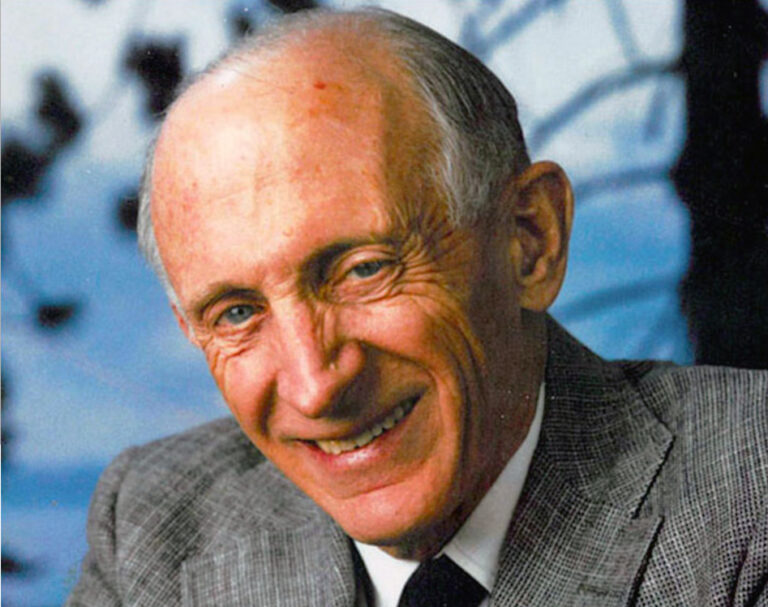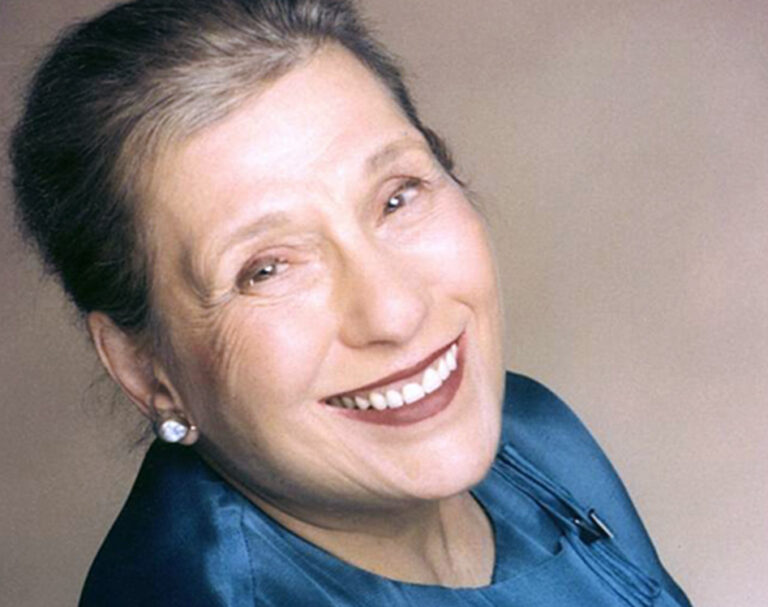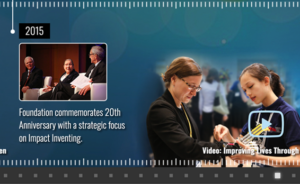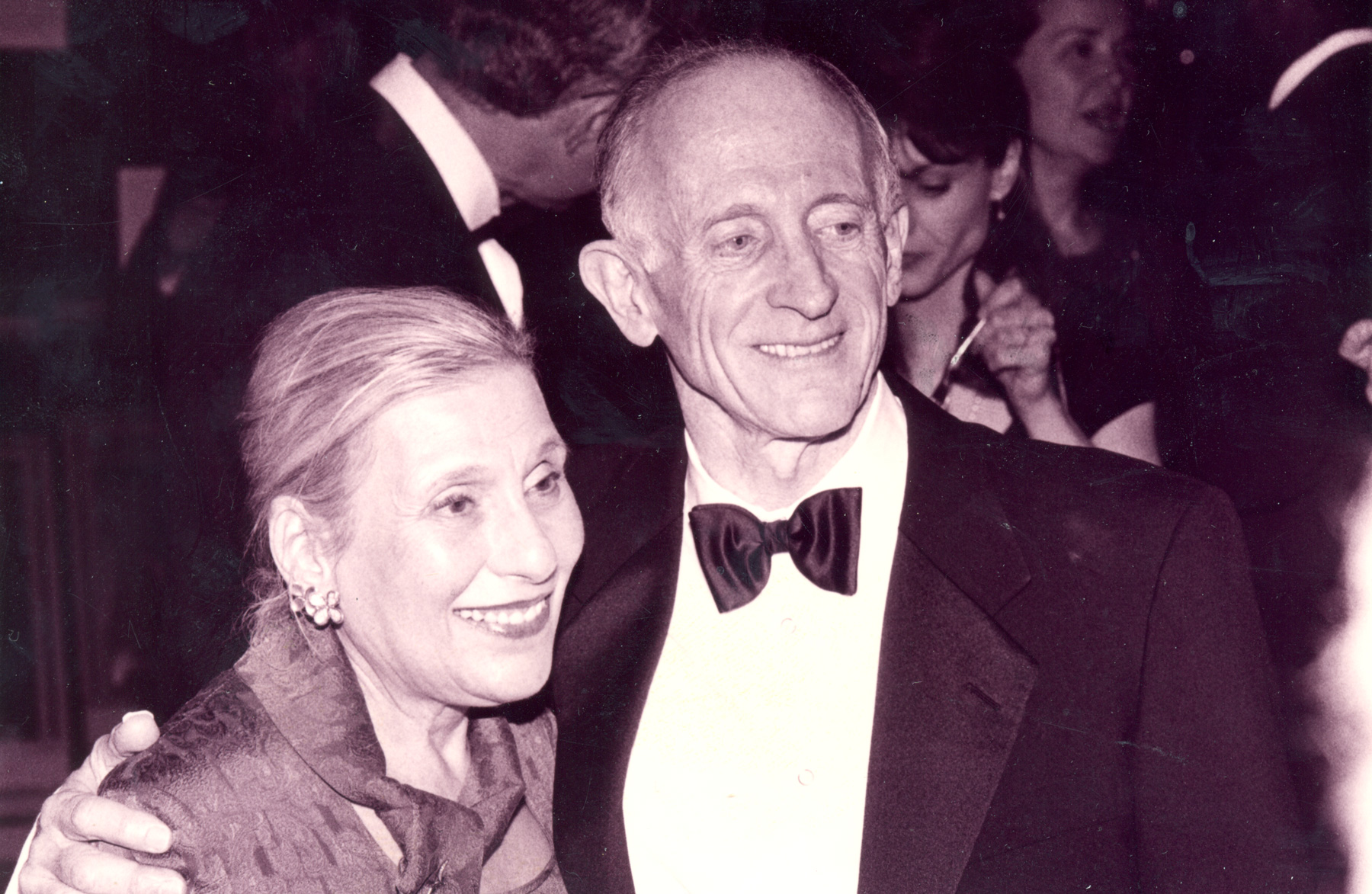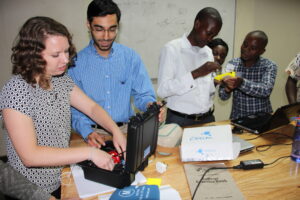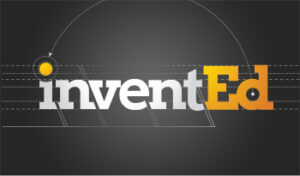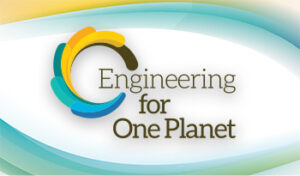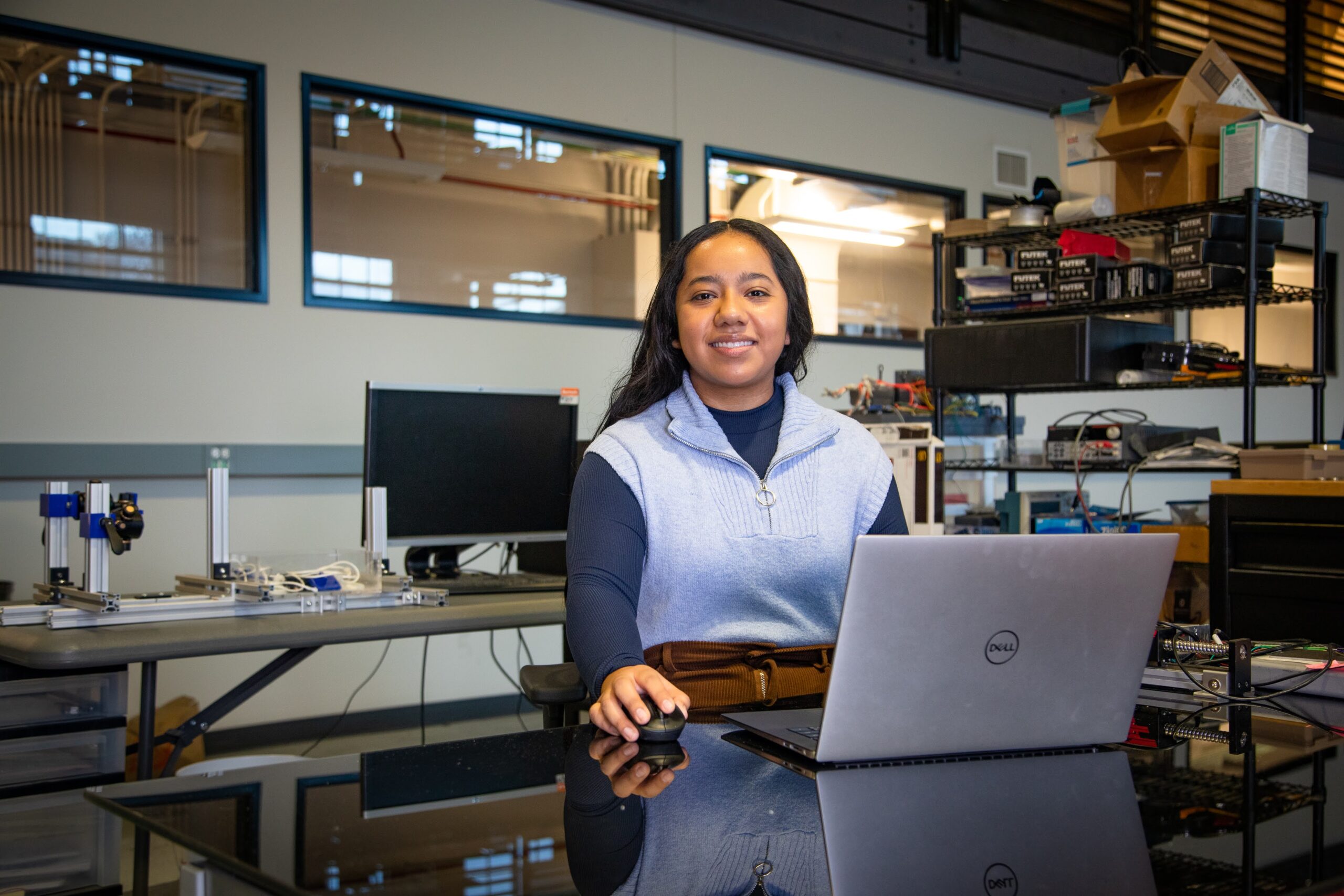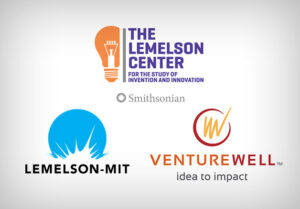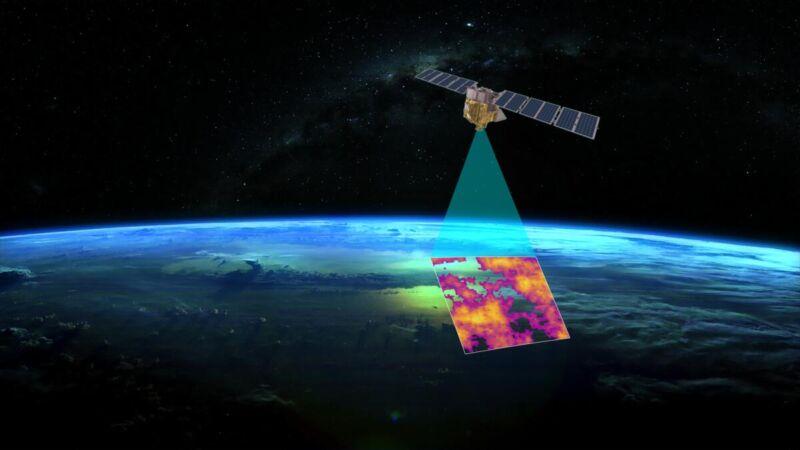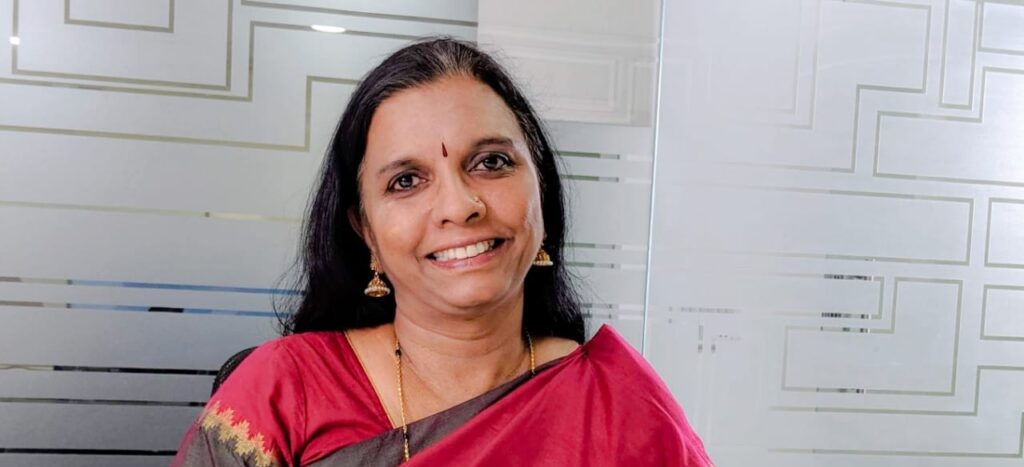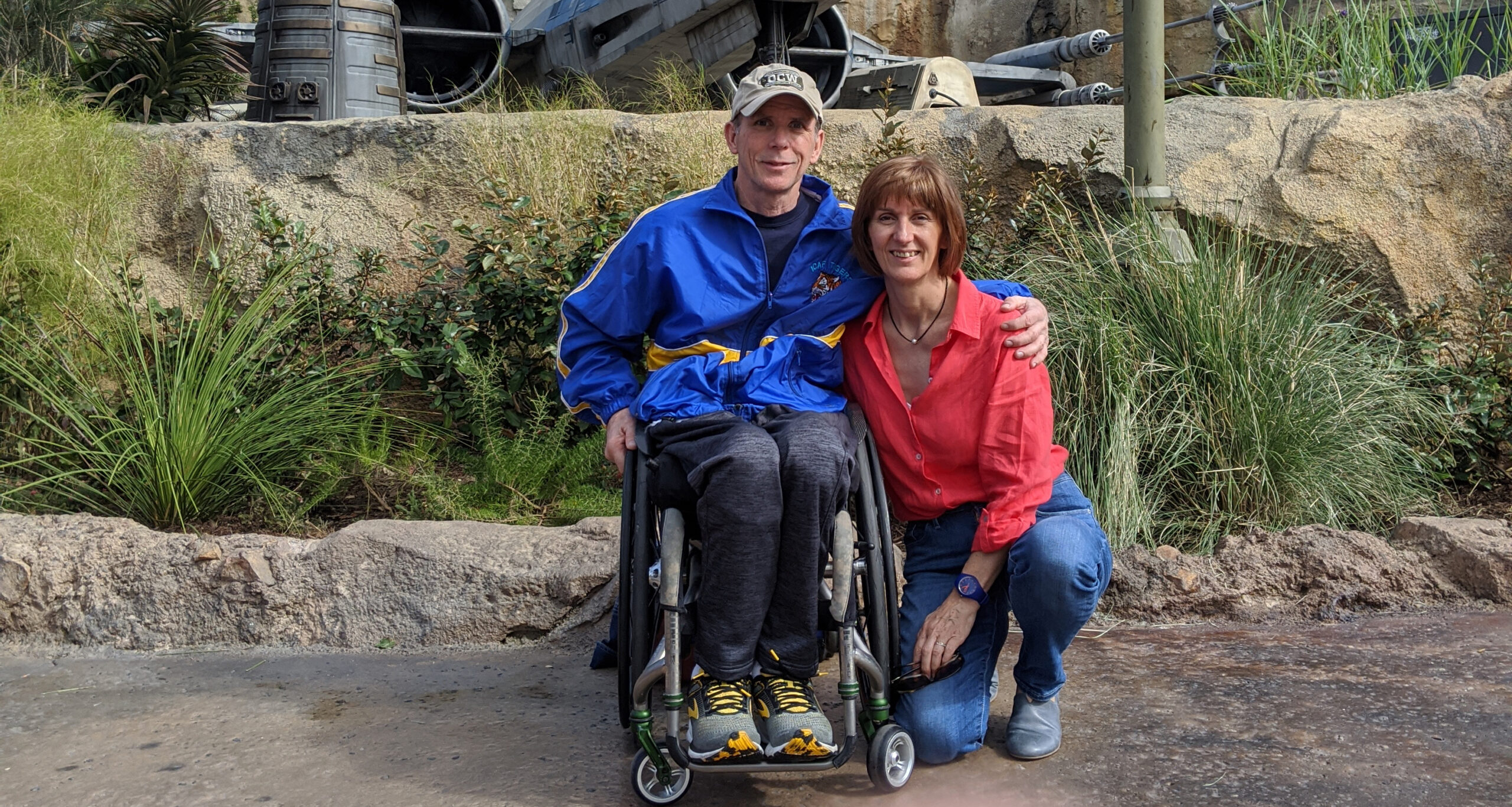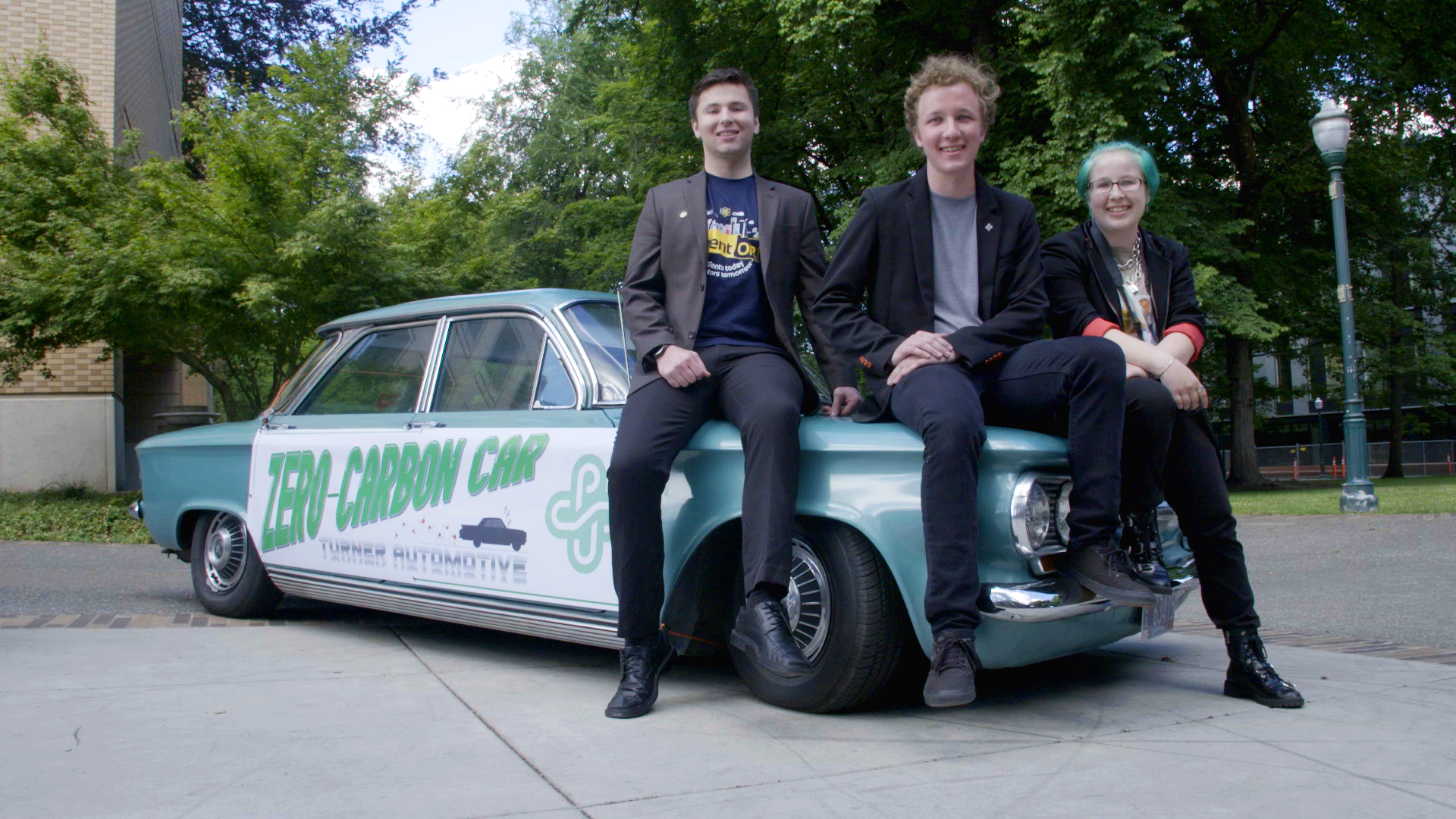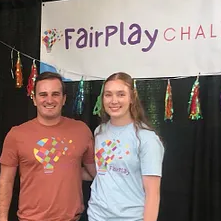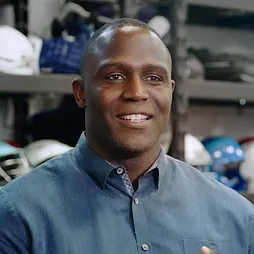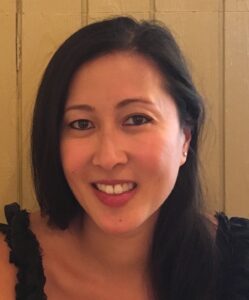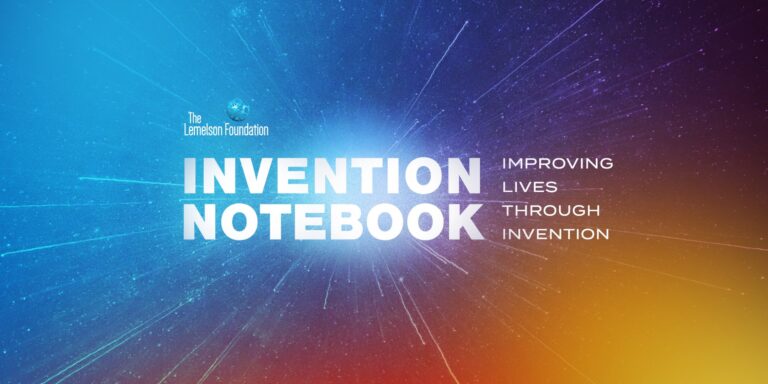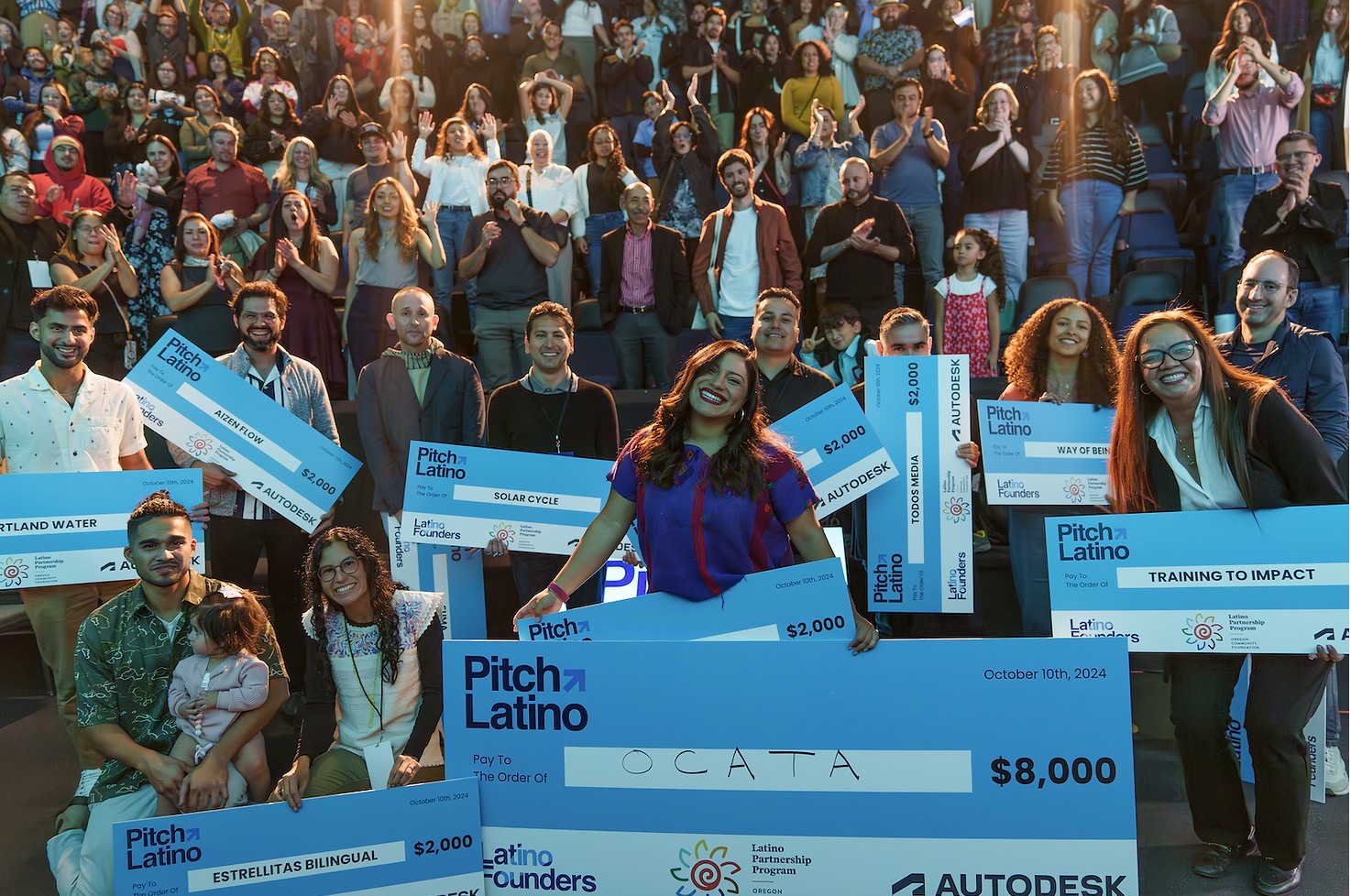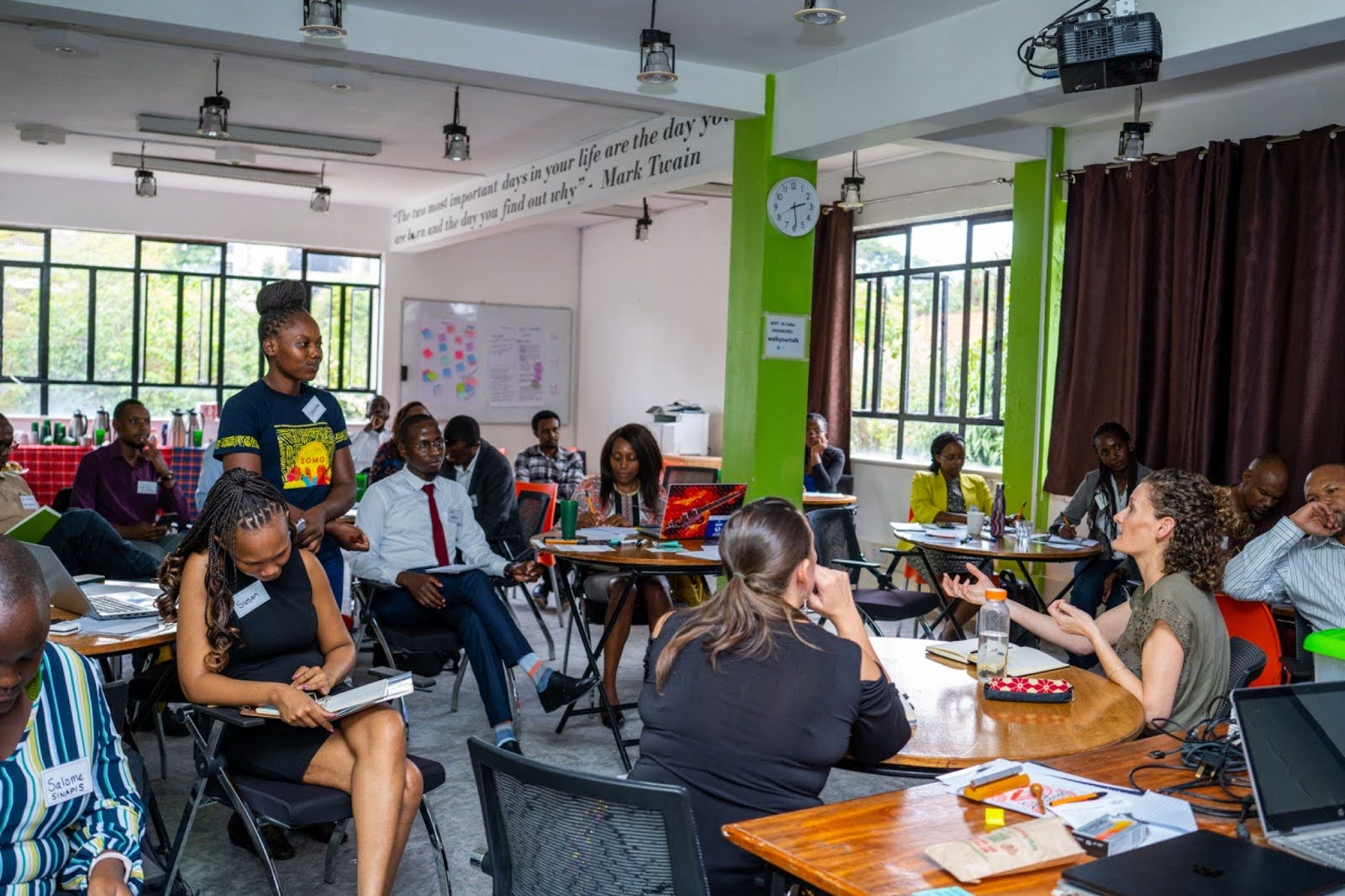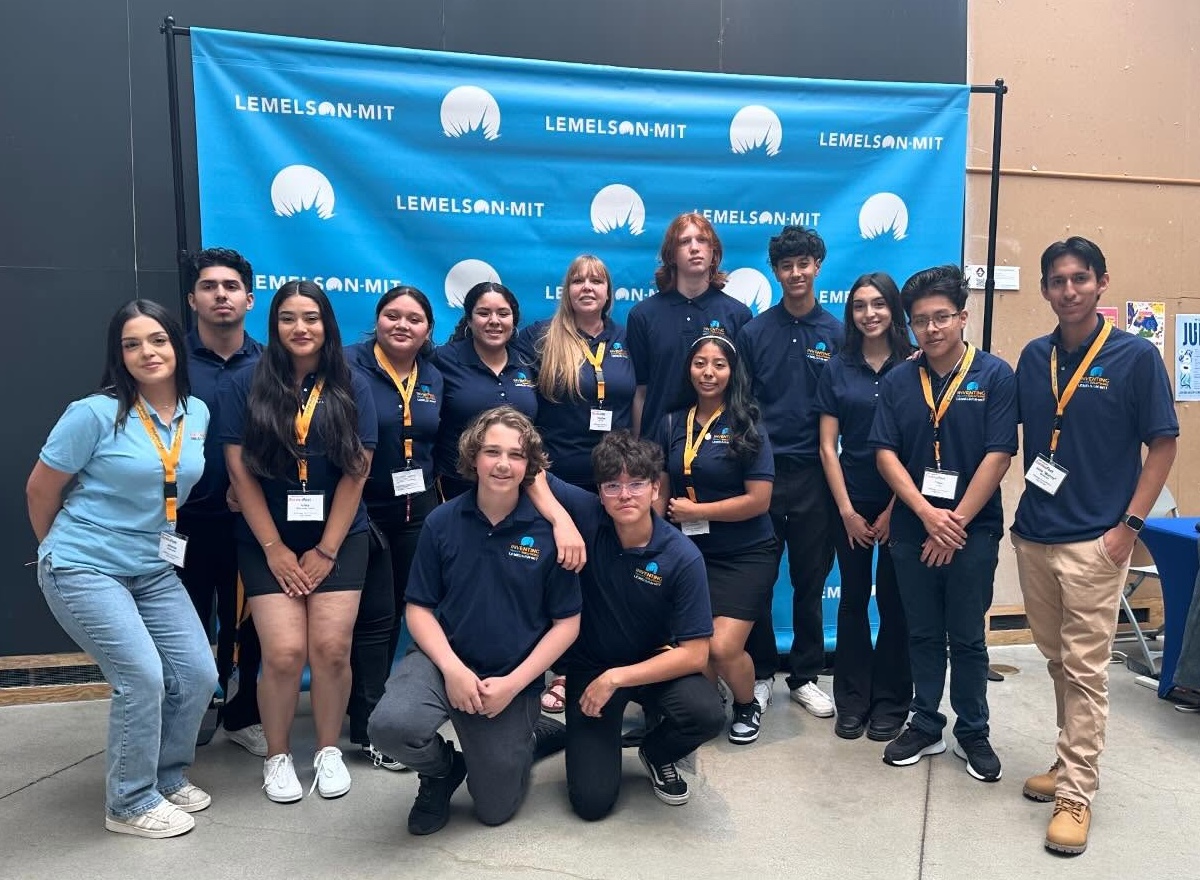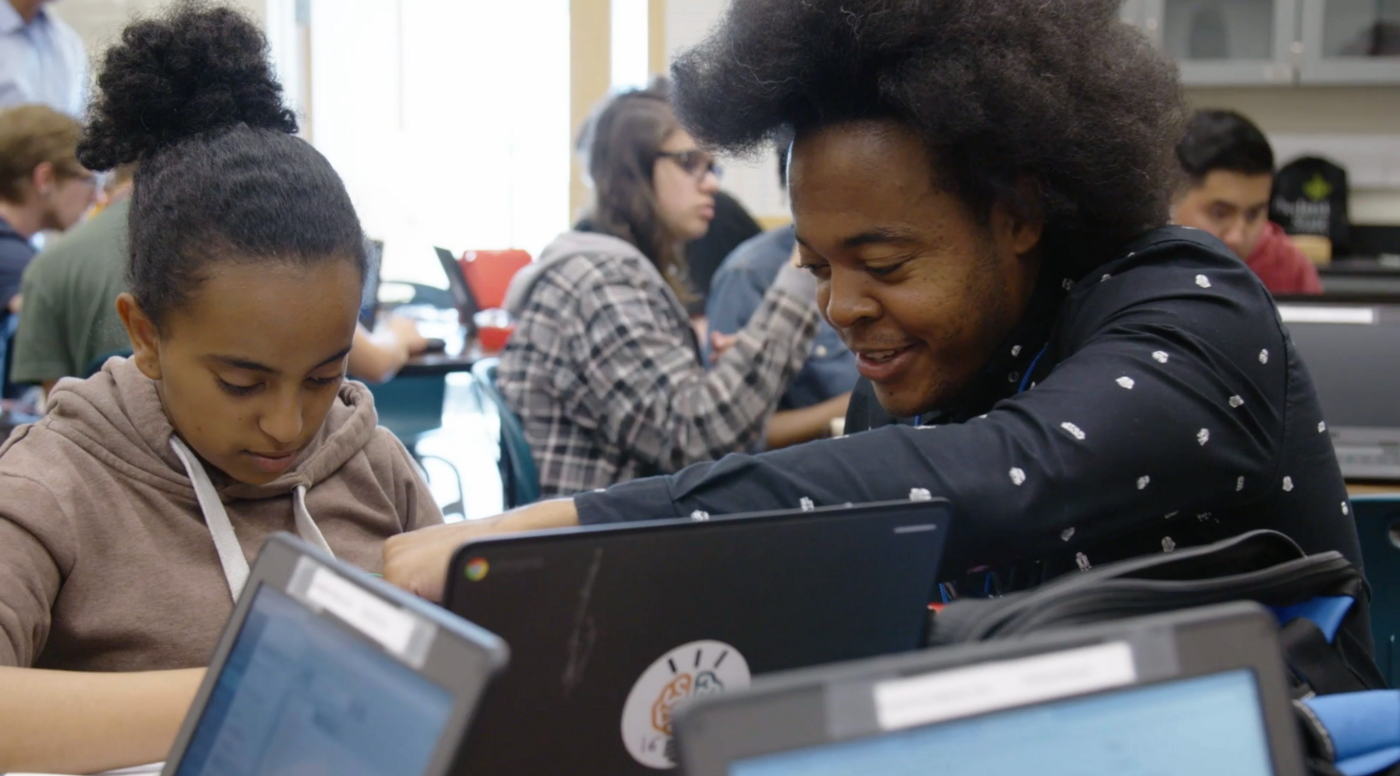Grantee Roundup: Invention-Based Enterprises Addressing COVID-19 in Developing Countries
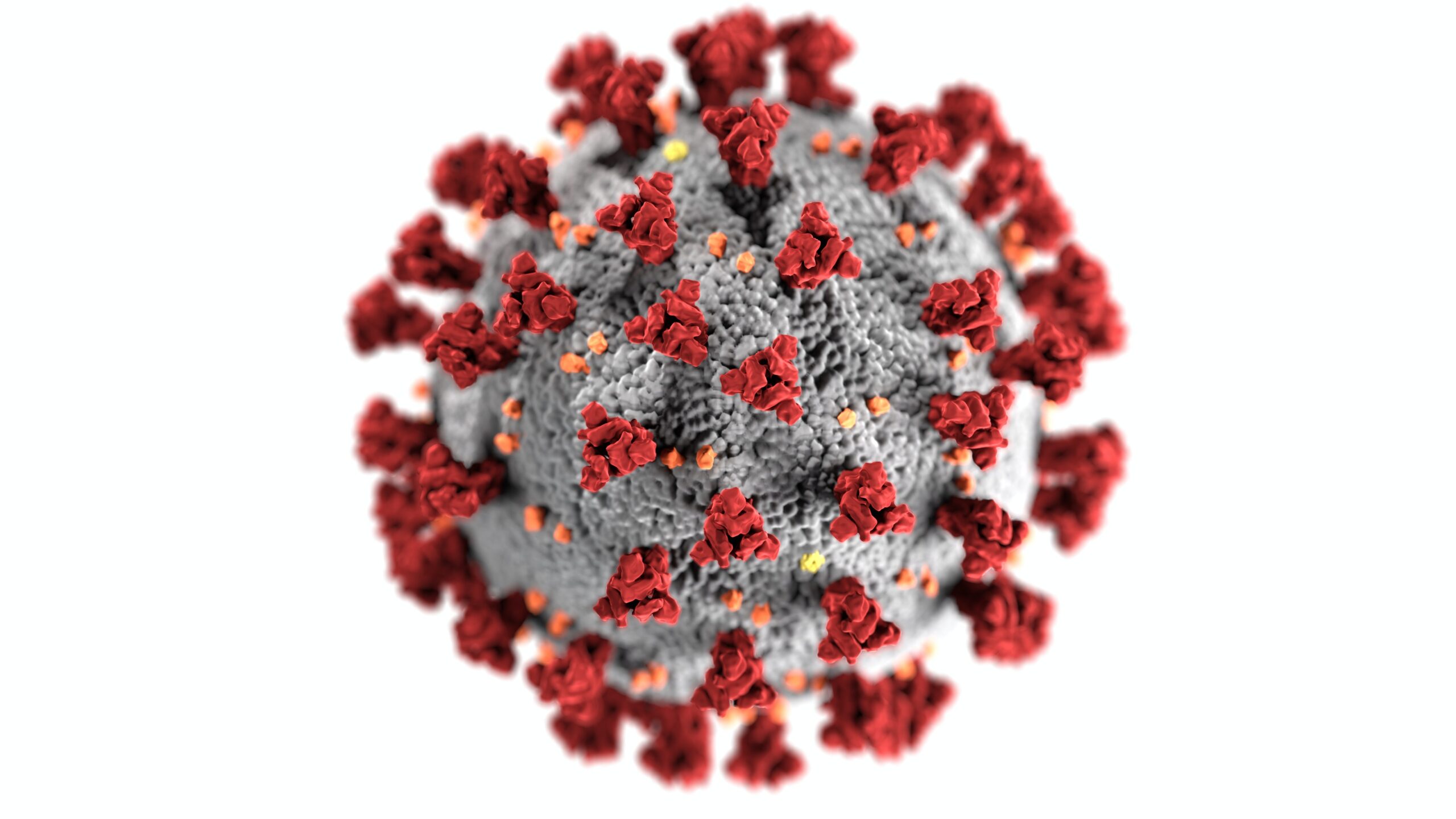
– 5C Network, which focuses on providing a network of virtual radiologists, has set up a Radiology Response Team that provides access to radiologists to inform decisions related to care of COVID-19-affected patients and assessing lung damage caused by the novel coronavirus.
– Medcords, which uses information and communications technology to digitize health records and make them accessible at small, rural-based health stores, has partnered with the government of Rajasthan to provide access for 68 million people to their platform to consult doctors and place medicine orders online in the context of COVID-19-related lockdowns.
– SatSure uses satellite technology, machine learning and big data analytics to facilitate better risk assessment in the agriculture sector. Now it is creating a crowd-sourced map to help reduce COVID-19-related food shortages and waste by bringing together farmers, traders and consumers across India to document what’s available, where and with whom.
– ThinkZone, which uses a technology-enabled, “school-in-a-box” approach to provide educators with resources to teach young students in rural areas, has started a voice-based parent engagement program that uses phone calls and SMS messages to deliver educational content and support to parents to facilitate remote learning in the absence of internet access.
Villgro Kenya is a Nairobi-based business incubator and investor supporting local solutions to Africa’s toughest health and development challenges. It has deployed funding awarded by the Foundation to 12 companies developing technology to address needs in the wake of the pandemic. Two examples of these companies include:– Flare, whose “Wheels for Life” program in Nairobi County sets up ambulance rides for women that have gone into labor past COVID-imposed curfew and haven’t been able to arrange other means of transport to a hospital to ensure that they deliver safely.
– Simbona Africa, an Ethiopian startup that developed a UVC Room Sterilizer with the ability to disinfect up to 40 square meters of a room using high-intensity ultraviolet light.
These 12 companies have raised $997,7000 as of August through follow-on grants and equity capital, and Villgro Kenya has formed a number of new partnerships with other relief and response funds so that capital is pooled to support promising inventions. Villgro Kenya is tracking company progress for evidence of market traction and potential for impact before deploying additional resources to three companies to support post-validation activities. Locally-based fund managers like the Menterra Social Impact Fund and Ankur are supporting companies at a later stage but offering similar advisory support to ensure that portfolio companies are managing cash effectively, planning for delayed fundraising, optimizing new market opportunities where their technology might play a critical role in addressing COVID-19 and accessing relief funding where available. Ankur Capital collaborated to help set up the ACT Grant Fund, which is funded by contributions from ACT members and veterans from the venture capital, start-up and corporate ecosystem in India. Grantmaking is focused on innovations focused on preventing COVID-19 spread, scaling testing, home-based disease management, enhancing support for healthcare workers and hospitals, management of critically ill patients and mental health support. To-date 46 companies have received grant funding. Here are some examples:– Omix has adapted their molecular diagnostics platform for infectious agents to detect and diagnose COVID-19 and other coronaviruses at a sensitivity equal to and better than existing tests, and in less than an hour.
– Tessol has pivoted to leverage their agriculture-focused, cold-chain technology to provide solutions for viral swab sample transport for better diagnostics in remote locations. It is one of 13 startups recognized by the Indian government for their COVID-19 response.
– Niramai has adapted their AI-enabled thermal imaging developed for their primary product for breast cancer screening to create Thermalytix, and AI-enabled solution using thermal cameras for automatic detection of fever and COVID-19 respiratory symptoms in crowds.
– Karma, a telehealth company, has extended their technology to a mobile version to enable doctors to see patients safely using telemedicine.
Biosense is a company formerly incubated by Villgro and received investment from the Menterra Fund and The Lemelson Foundation that develops network-connected medical devices for point-of-care diagnostics in low-resource settings in India. In July, 2020, Biosense – which was purchased by Tulip Diagnostics – was ramping up production so that they were poised to be producing 50% of all nasal swab test kits for India, at a tenth of the cost of imported swabs. The SELCO Foundation develops and deploys clean energy solutions for India’s under-resourced communities. It has pivoted to increase access to COVID-19-related healthcare information, services and protective gear, and supported companies in their incubation program to pivot their business models to be relevant in addressing needs that have arisen as a result of the pandemic. Specifically:– It developed solar-powered, mobile COVID-19 testing units.
– It developed an open-source Solar-Powered Swab Collection Kiosk currently being implemented with existing and new enterprise and health partners.
– Together with Indian social enterprise LabourNet, it developed COVID-19 guidelines for migrant construction workers, which is being scaled up through government partnerships and is helping to roll out protocols for labor communities.
– Solar-powered sewing machines modified by SELCO are being used by Urmul Desert Crafts to create facemasks for poor residents of rural, desert communities.
– Companies that are a part of its tech incubation portfolio have responded to COVID-19 needs, like Blackfrog Technologies, which has developed a portable, medical-grade refrigerator for remote and rural specimen collection centers.
Rice University worked with its partners Malawi Polytechnic and Malawi University of Science and Technology (MUST) to address the COVID-19 pandemic through their Design Studio.– The Design Studio was quickly transformed to produce PPE such as face masks and shields, as well as essential medical equipment such as ventilators and disinfection chambers.
– In August, two students from the Design Studio were named UNICEF COVID-19 Youth Challenge winners for projects including an application to simplify implementation of e-learning in rural areas, and a hand sensitization unit that is meant to help increase touch free-disinfection practices in high volume public areas and hospitals.
– The Design Studio has also manufactured a Full Body Sanitization Chamber to disinfect individuals from head to toe with a sanitized steam for a period of 20 seconds.

